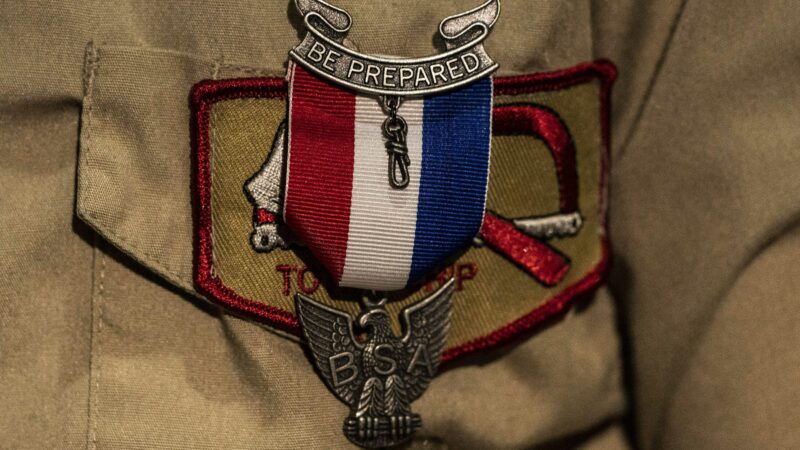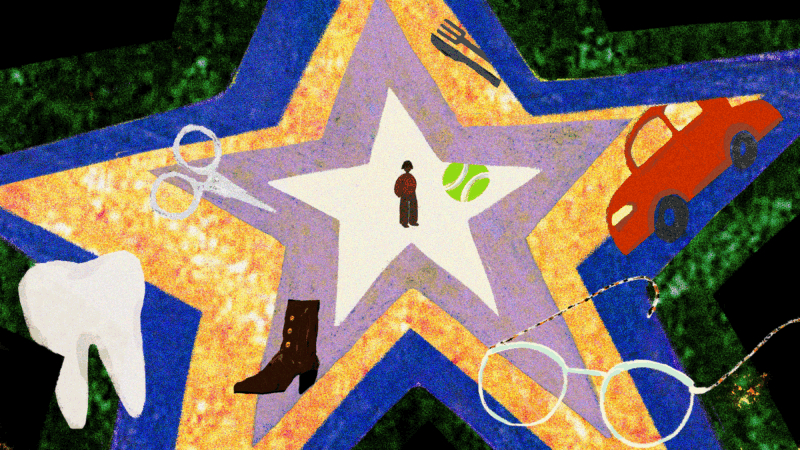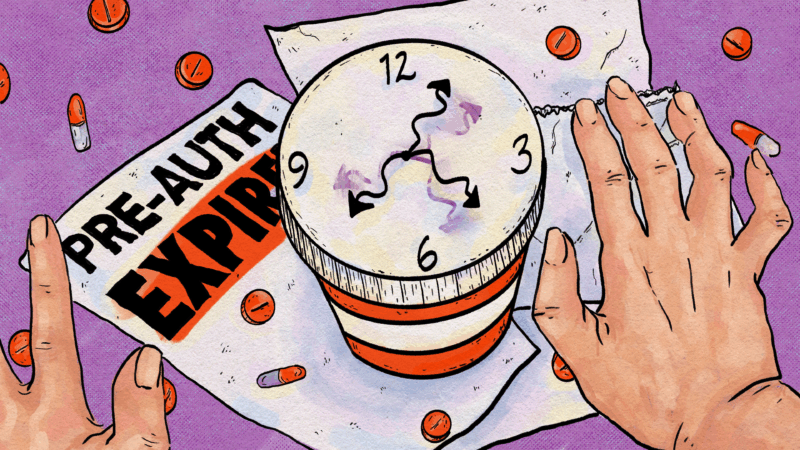Goalball: Blind Ambition
In goalball, everyone is trying to get hit.
“It’s basically reverse dodge-ball. It’s three on three. And instead of getting out of the way, you’re diving on a gym floor about 80 times a game or getting smacked by the ball going 40-45 miles an hour. If you’re doing your job right.”
Team USA member Jen Armbruster’s been blind since 17 after her optic nerves degenerated. Now she’s a recreational and sports activity coordinator for the visually impaired at Lakeshore.
She and the rest of the Women’s Team USA – winners of the silver in the 2004 Athens games — are playing in a tournament that runs through the weekend. It’s a way to practice up for the Paralympics that start in September.
“The big prize is China. So this is just a step in that direction, to see how we match up and get a chance to look at those three teams over, you know, four days.”
Women’s teams from Denmark, Japan and Canada are also in town. The Canadian team has won the gold the last two Paralympics and won the world championship in ’06.
Janice Dawson coaches the team and says the physical nature of it can be bruising. The players are padded but still must lunge in the direction of a sound – the ball with bells in it – to stop it from going into the goal.
“They basically go down on the floor and stretch out as far as they can to take up as much space as they can so they can block the ball. (So they sort of take a dive?) They sort of take a dive. (Isn’t that painful?) Not if you do it properly.
On Lakeshore’s hard, wooden floor, they’re even practicing that.
“You know practice makes perfect. It’s true. The more you practice, the more you get to learn about the ball and about your opponents and who’s throwing and how they throw.”
That means player Annette Lisabeth from Ontario has to focus not only on the physical possibility of dropping to the floor to block a shot, she has to listen closely for the ball that’s coming at her – and that could be a foot or two on either side.
“I find one of the hardest shots to block is a curve shot. Because it sounds like it’s coming from one way and it sneaks around you.”
Team USA’s Asya Miller feels her pain.
“That’s really the whole point of the sport is to try to figure that out and to kind of hone your instincts. And you practice and you do a lot of practice and a lot of defensive drills.
The tournament is nothing new to Lakeshore, which has hosted wheelchair tennis and basketball tournaments and is an official Paralympics training facility. Jeff Underwood is its president.
“We’ve been doing this for at least twenty years as a – having Paralympics athletes from around the world come here. And we’re particularly proud to be the home for a lot of the US teams that are in training throughout the year.”
Underwood – who plays a key role in the Paralympics games — says he’s witnessed so many athletes who have overcome physical and visual impairments that it makes him wonder how anyone couldn’t take these players seriously.
“Try playing any sport with your eyes closed and I think that perception changes.”
The tournament runs through Sunday with the medal games starting at 2 PM and a very quiet public is encouraged to come and watch.
|
Tournament Schedule
Friday, July 11, 2008
Saturday, July 12, 2008
Sunday, July 13, 2008
|
Pentagon shifts toward maintaining ties to Scouting
Months after NPR reported on the Pentagon's efforts to sever ties with Scouting America, efforts to maintain the partnership have new momentum
Why farmers in California are backing a giant solar farm
Many farmers have had to fallow land as a state law comes into effect limiting their access to water. There's now a push to develop some of that land… into solar farms.
Every business wants your review. What’s with the feedback frenzy?
Customers want to read reviews and businesses need reviews to attract customers. But the constant demand for reviews could be creating a feedback backlash, experts say.
Can’t get a prescription renewed? Here’s how to cope with prior authorizations
These health care hurdles can stand in the way of getting treatment your doctor says you need. Here's what to know about how to deal with them.
Civil rights leaders say the racial progress Jesse Jackson fought for is under threat
Activists say racial progress won by the Rev. Jesse Jackson is under threat, as a new generation of leaders works to preserve hard-fought civil rights gains.
‘Get back to integrity’: Oklahoma’s Kevin Stitt on Republicans after Trump
NPR's Steve Inskeep asks Oklahoma Gov. Kevin Stitt about his spat with President Trump, immigration and the future of the Republican Party.





